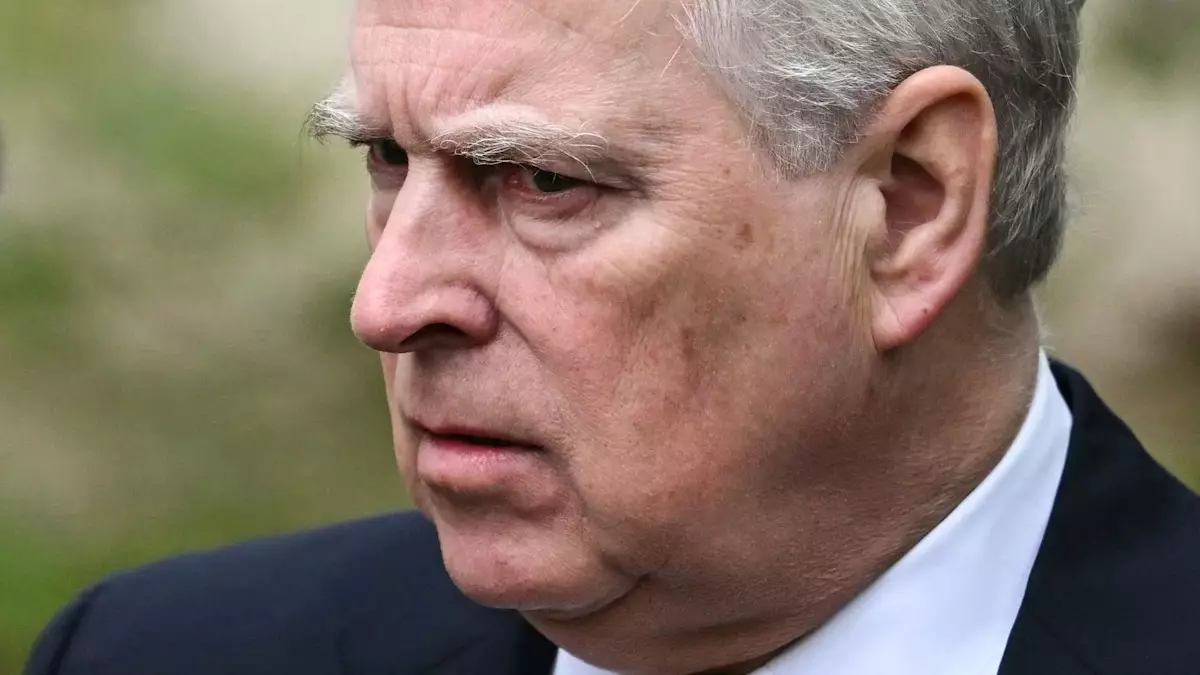The landscape of national security increasingly intersects with personal relationships, especially when high-profile figures are involved. A recent UK decision to bar a Chinese businessman, referred to as H6, from entering the country has thrown light on the delicate balance between friendship and national interests. This case not only reflects the growing awareness of foreign influence in domestic affairs but also exemplifies the complexities that arise when personal connections meet geopolitical tensions.
In March 2023, British officials announced their intention to exclude H6 from the UK, citing national security as the primary justification. H6, a businessman reportedly in close contact with Prince Andrew, found himself embroiled in controversy as allegations emerged regarding his potential links to the Chinese Communist Party (CCP). In an era where foreign interference is highly scrutinized, officials deemed H6’s connections dangerous, leading to a significant legal battle that concluded when his appeal was dismissed by the Special Immigration Appeals Commission (SIAC).
The Home Office’s claims painted a grave picture—asserting that H6’s activities were covert and deceptive in nature, aimed at furthering the interests of the CCP. Making matters more complicated was the businessman’s relationship with Prince Andrew, which officials argued amplified the potential risk to UK national security.
The crux of the Home Office’s concerns lay in H6’s unique relationship with Prince Andrew. Testimonies, particularly a letter from Andrew’s adviser, Dominic Hampshire, highlighted H6’s elevated status with the Duke. The letter characterized H6 as someone who could be trusted immensely—a relationship that could easily lend itself to potential misuse in political contexts.
This alarming intersection of royal ties with a foreign individual reportedly linked to a controversial government raised red flags. The possibility that H6 could leverage his relationship with Prince Andrew to engage in political interference was underscored by evidence presented during legal proceedings. It suggested that the Duke might have been in a vulnerable position, particularly during trying circumstances, making such political influence all the more concerning.
The judicial review offered no reprieve for H6. SIAC concluded that the Home Secretary was within her rights to deem him a national security risk, ruling that the potential consequences of his presence in the UK could not be understated. The judges highlighted the potential for H6 to exert influence due to his established connections with Prince Andrew—concluding that, while his exclusion would not fully eliminate risks, it would significantly impair his ability to forge and maintain connections within the UK.
H6’s defense portrayed a contrasting narrative, framing the businessman as a mere entrepreneur striving to expand his operations internationally, rather than a political actor involved in clandestine activities. His legal team argued the complexities faced by Chinese nationals in business, highlighting the difficulty of completely detaching oneself from the CCP, a sentiment that reflects the intricate web of business, politics, and national identity in China.
The ruling epitomizes the broader national security concerns that many countries, including the UK, are grappling with as they face the realities of global interdependence and foreign influence. While H6 denied significant ties to the CCP, the case raises essential questions about how personal relationships can intersect with national security interests, especially involving high-profile figures.
The UK government’s resolute stance in safeguarding its democratic processes echoes broader trends among Western nations aiming to fortify their political landscapes against potential foreign meddling. This incident could represent a precedent for future cases where the affiliations of influential individuals necessitate a thorough scrutiny of their associations and possible impacts on state security.
The decision to bar H6 from the UK will likely resonate for some time, serving as a reminder of the delicate nature of trust in high-stakes environments. Prince Andrew’s silence on the matter further compounds the complexities, leaving questions regarding the implications of his associations largely unanswered. Ultimately, this case illustrates the intricate dance between personal loyalty and overarching national concerns, urging policymakers to navigate these waters carefully as they seek to protect their interests while engaging in international dialogues.

